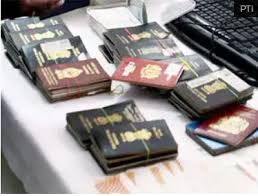SAARC Visa Exemption Scheme:

The Cabinet Committee on Security (CCS) has revoked the South Asian Association for Regional Cooperation (SAARC) Visa Exemption Scheme (SVES) for Pakistani nationals following the Pahalgam terror attack.
- This marks a firm diplomatic response to Pakistan’s continued support for cross-border terrorism.
- SAARC Visa Exemption Scheme launched in 1992, based on the decision of the 4th SAARC Summit in 1988 held in Islamabad.
- It is designed to facilitate people-to-people contact and regional cooperation among SAARC nations.
- It permits select individuals from member countries to travel without a visa using a Special Travel Document.
- It covers 24 categories, including dignitaries, judges, parliamentarians, officials, businesspersons, journalists, and sportspersons.
- Visa Stickers are issued by each SAARC member state to eligible individuals from their country, typically valid for one year and reviewed regularly by immigration authorities.
- Citizens of Nepal and Bhutan do not need a visa to enter India. For Pakistani nationals, only select categories were eligible for a multiple-entry Business Visa—initially valid for one year and limited to 10 locations.
- In 2015, India revised the rules, allowing special-category Pakistani businessmen a multiple-entry visa valid for up to three years, restricted to 15 designated places.
- Among SAARC countries, Sri Lankan nationals were eligible for the e-Tourist Visa facility.
- Indian nationals do not need a visa to visit Nepal and Bhutan, while other SAARC countries offer Business Visa facilities to Indian citizens.
- The CCS notified that all SAARC Visa Exemption Scheme (SVES) visas issued to Pakistani nationals are now void, and those currently in India under this scheme must leave the country




